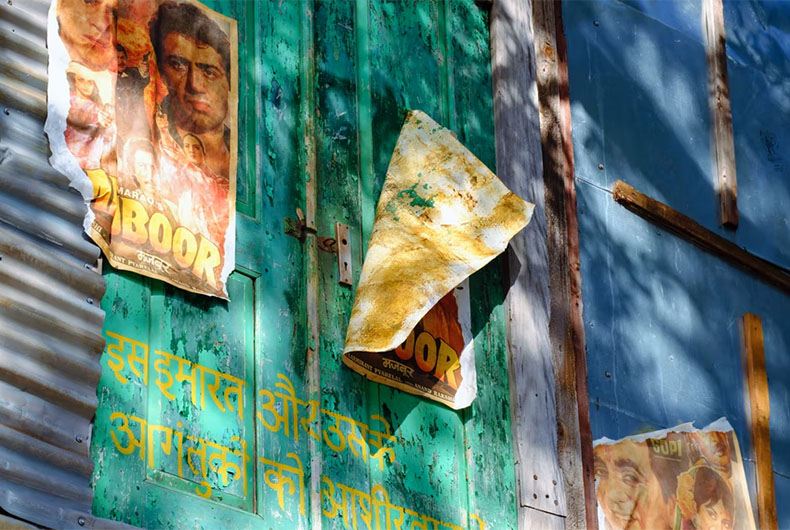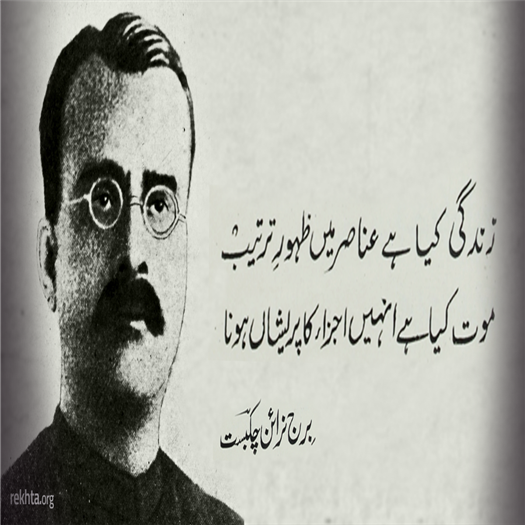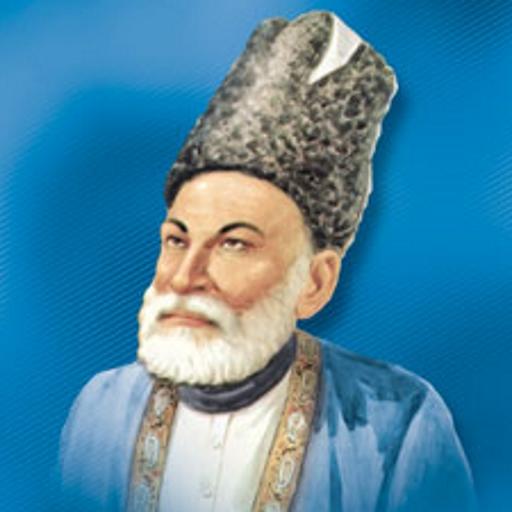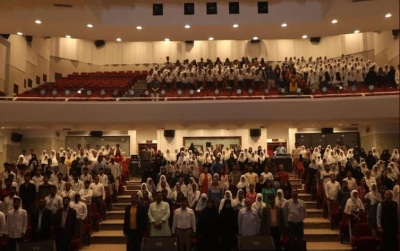It would be easy to pass this off as imitation, but we must remember literature, like other forms of culture, and in all its spheres, is a human construct
Vikas Datta
Several cultures postulate a cyclical construct of time, instead of linear. This may or may not be valid for history but it manifests itself prominently in human culture. Literature, for one, given how motifs, plots, and expressions crop up again and again over time, or are repeated even in its most popular form — film lyrics. Bollywood is an apt example.
Do you remember the phrase “Awaaz ki duniya ke doston…”? Most film aficionados would instantly place it as the catchphrase of Rajesh Khanna in the superhit musical drama “Anurodh” (1977).
However, it actually dates back to song “Sitam the zulm the aafat the intezar ke din/Hazaar shukr ke dekhenge ab bahar he din”, or more commonly “Man darpan hai jag sara”, sung by K.L. Saigal in “Dushman” (1939), starring him, Prithviraj Kapoor, and Leela Desai. The lyricist was ‘Arzoo Lakhnavi’.
It would be easy to pass this off as imitation, but we must remember literature, like other forms of culture, and in all its spheres, is a human construct, and while it is prone to imitation, the more appropriate term would be inspiration. Or more importantly, its role in rescuing hosts of forgotten poets from obscurity.
In this case, how many beyond the dedicated Urdu poetry connoisseurs/Bollywood historians, would recall the name of Syed Anwar Hussain ‘Arzoo Lakhnavi’ (1873-1951)?
Yet, in his time, he was much respected for his poetry, in and outside films, responsible for crafting lyrics for the earliest superstars — Saigal (“Karun kya aas niras bhayi” in “Dushman”, 1939); Kanan Devi (“Lachhami murat daras dikhaaye” in “Street Singer”, 1938); as well as some of the earliest featuring emerging stars such as Madhubala (“Aayi Bhor Suhani” in “Beqasoor”, 1950).
Saigal’s heyday
Nor is this a modern phenomenon — it was there in Saigal’s heyday too.
At that time, there was another notable lyricist, by the name of Pandit Sudarshan, among whose oeuvre was the rather doleful “Andhe ki lathi tu hi hai, tu hi jivan ujiyaraara hai…” for Saigal’s “Dhoop Chhaon” (1935).
As Saigal aficionados may recall, it begins with a spoken couplet: “Dil ke phaphole jal uthe seene ke daag se/Is ghar ko aag lag gayi ghar ke chiraag se”, and while Sudarshan can take credit for the song, these lines were inspired by an 18th-century prodigy.
Pandit Mehtab Rai ‘Taban’ was 12 when he recited: “Sholaa bhadak utha mere is dil ke daagh se/Aakhir ghar ko aag lag gayi ghar ke chiraagh se” at a Delhi mushaira, impressing Khwaja Mir Dard, who was in attendance.
And here, it is important to stop and stress that this is not plagiarism or even imitation, but a key constituent of the Urdu poetic tradition, where even one couplet, or even one line, may be used by another poet, as it is or modified appropriately for another context.
Another major example is from Dilip Kumar-Nargis starrer “Mela” (1948), which saw the genesis of a triad that was behind some of the Hindi film industry’s most signal, soulful, stirring songs — music director Naushad, lyricist Shakeel Badayuni, and singer Mohammed Rafi.
The film’s signature classic “Yeh zindagi ke mele…” was however not entirely Shakeel’s brainchild.
“Yeh zindagi ke mele, yeh zindagi ke mele, duniya mein kam na honge/Afsos ham na honge…” derives inspiration from 18th-century Faizabad master poet Mirza Mohammad Taqi ‘Taqi’, who had declaimed: “Duniye ke jo maze hain hargiz woh kam na honge/Charche yahin rahenge afsos ham na honge.”
The trend continued down the years.
Majrooh Sultanpuri
In 1969, Majrooh Sultanpuri, a poet and lyricist of no mean renown, borrowed one telling line from Faiz Ahmed Faiz’s immortal ‘nazm’, “Mujh se pehli se mohabbat mere mehboob na maang” (already used in Pakistani film “Qaidi”) for the opening for Rafi-rendered “Teri aankhon ke siva duniya mein rakha kya hai…” in “Chirag” (1969), starring Sunil Dutt and Asha Parekh.
Majrooh then went to use the opening stanza of Mir Taqi Mir’s “Pattaa pattaa buta buta hal hamare jane hai…” to begin a song titled the same in “Ek Nazar” (1972), starring Amitabh Bachchan, and Jaya Bhaduri, though the rest of the lyrics are his own.
Gulzar and Sahir Ludhianvi
Gulzar followed suit in “Mausam” (1975), using Ghalib’s couplet “Dil dhoondhta hai phir wahi fursat ke raat din/Baithe rahe tasavvur-e-jaanan kiye hue…” to initiate the song of the name sung soulfully by Bhupinder and Lata Mangeshkar.
Even Sahir Ludhianvi couldn’t resist this trend. In the Bollywood remake of that tragic Middle Eastern love story, one key sequence — and the resulting song — in “Laila-Majnu” (1976) draws inspiration from an 18th-century Sufi saint living near Lucknow who was a self-taught ‘shayar’.
Sheikh Turab Ali Qalandar Kakorvi’s “Shahr mein apne Laila ne manadi kar di/Koi pathar se na maare mere deewane ko” is better known to us as in this form: “Husn haazir hai mohabbat ki saza paane ko/Koi patthar se na maare mere deewane ko”. This was when the heroine defies — and simultaneously manages to pacify — a bloodthirsty gathering.
In 1981, Anand Bakshi went the truthful best with the trend. In another tragic inter-regional romance that introduced Kamal Haasan to a pan-Indian audience, the “Ek Duje Ke Liye” title song has the heroine (Rati Agnihotri) say: “Ishq par zor nahi, Ghalib ne kaha hai isiliye…” There can scarcely be a better usage.
But in “Bazaar” (1982), starring Naseeruddin Shah, Farooq Shaikh, Smita Patil and Supriya Pathak, the makers turned wholesale to some greats of Urdu poetry.
Save “Karoge yaad to, har baat yaad aayegi”, which was written by Bashar Nawaz, “Dekh lo aaj hamko ji bharke/Koi aata nahi hai phir marke” is 18th-century master poet Mirza Shauq Lakhnavi; “Phr chhidi raat, baat phuulon ki” is by 20th-century great Makhdoom Mohiuddin; and “Dikhai diye yun ki bekhud kiya” is the third or fourth ‘sher’ from Mir Taqi Mir ghazal, which begins with “Faqeerana aaye sadaa kar chale/Miyan tum khush raho ham dua kar chale”, but uses just four of the 15-odd ‘shers’ in it.
Contemporary lyricists
There are not many such examples since then and now. The quality of most lyrics since then has not much to say for it, it is also possible that the new breed of lyricists were not that comfortable or even conscious of the Urdu literary tradition or sought to move on with a new idiom and style of speech.
And then in our current age, with the steadily diminishing attention spans of people, abbreviated ways of conversing, and focus on other ways and means of leisure, poetic traditions don’t seem destined to gather that much focus.
Finally, there is another example, but only peripherally connected to Bollywood.
From the 1970s, Indian whiskey brand ‘Bagpiper’ roped in various actors for its advertisements — direct and then surrogate as laws changed. Remember Shatrughan Sinha and then Dharmendra’s invitation: “Khoob jamega rang, jab mil baithenge teen yaar — aap main aur Bagpiper.”
This also derives from a sher of Ghalib’s poetic disciple Mian Dad Khan “Sayyah”, who had said: “Qais jangal mein akela hai mujhe jaane do/Khub guzregi jo mil baithenge deewane do.”
Linguistic purists may contend that its two that makes company, not three — but then, mass advertising, especially when it involves celebrity endorsement, moves by its own internal logic.






0 Comments